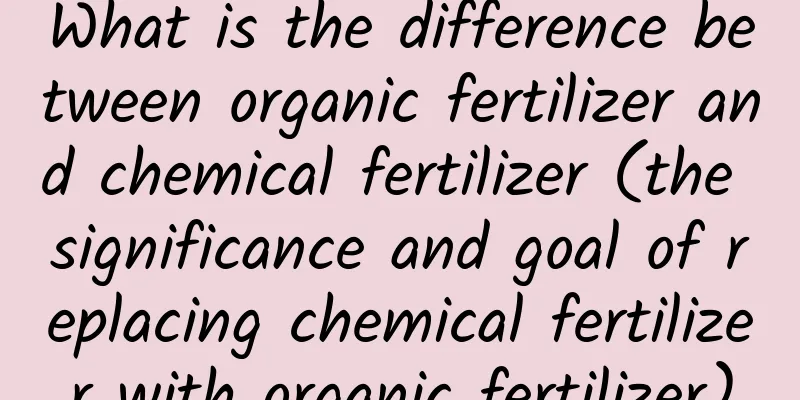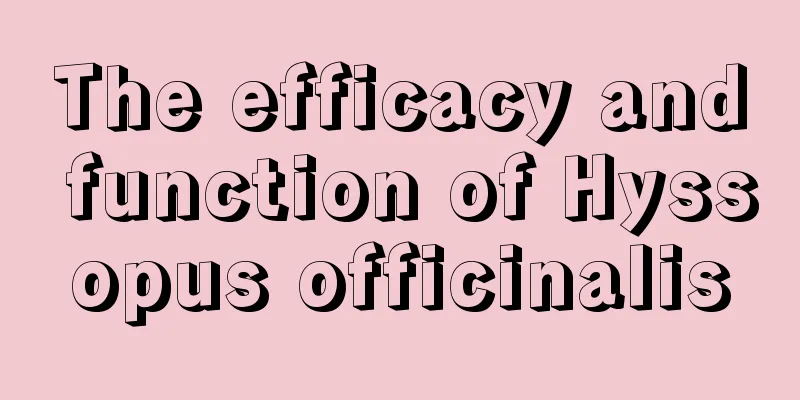What is the difference between organic fertilizer and chemical fertilizer (the significance and goal of replacing chemical fertilizer with organic fertilizer)

|
Side effects of chemical fertilizers : Reasonable use of chemical fertilizers can increase food production, but few people pay attention to the dangers of excessive use of chemical fertilizers. Why do you say that? Do you feel that the use of fertilizers is increasing, but the yield is not increasing? Do you find that the quality and taste of agricultural products grown nowadays are not as good as before? The dangers of excessive use of fertilizersWhen large amounts of single-element fertilizers are applied, their nutrients cannot be effectively absorbed and utilized by crops, and some chemicals such as nitrogen, phosphorus and potassium are easily consolidated in the soil. They form various chemical salts and accumulate in the soil, causing an imbalance in the soil nutrient structure and deterioration of physical properties. In some plots, harmful metals and harmful pathogens exceed the standard, leading to deterioration of soil properties. Long-term excessive application of nitrogen fertilizer will also cause the loss of elements such as calcium and magnesium, causing continuous acidification of the soil and ultimately loss of productivity. Why do we support organic fertilizers to replace some chemical fertilizers now?The function of organic fertilizer : The main advantage of organic fertilizer is that it is rich in organic matter, which can improve soil and improve soil fertility. After organic fertilizer is applied to the soil, organic matter can effectively improve the physical and chemical conditions and biological properties of the soil, mature the soil, enhance the soil's fertilizer retention and supply capacity and buffering capacity, and create good soil conditions for crop growth. In addition, after decomposing in the soil, organic fertilizer provides energy and nutrients for soil microbial activity. It promotes microbial activity, accelerates the decomposition of organic matter, and produces active substances that can promote crop growth and improve the quality of agricultural products. Finally, organic fertilizers contain more nutrients but the relative content is low and they are released slowly, while chemical fertilizers have a high unit nutrient content, few ingredients, and are released quickly. The two are applied in a reasonable combination and complement each other. The organic acids produced by the decomposition of organic matter can also promote the dissolution of mineral nutrients in the soil and fertilizers. Organic fertilizer and chemical fertilizer promote each other, which is beneficial to crop absorption and improves the utilization rate of fertilizer. The difference between organic fertilizer and organic fertilizer:(1) Organic fertilizers contain a large amount of organic matter and have a significant effect on improving soil fertility. Chemical fertilizers can only provide inorganic nutrients to crops. Long-term application will have an adverse effect on the soil, making the soil "greier and greasy". (2) Organic fertilizers contain a variety of nutrients, and the nutrients they contain are fully balanced; while chemical fertilizers contain a single type of nutrients, and long-term application can easily cause nutrient imbalance in the soil and food. (3) Organic fertilizers have low nutrient content and need to be applied in large quantities, while chemical fertilizers have high nutrient content and need to be applied in small quantities. (4) Organic fertilizers have a long-lasting effect; chemical fertilizers have a short and strong effect, which can easily cause nutrient loss and pollute the environment. (5) Organic fertilizers come from nature and do not contain any chemical synthetic substances. Long-term application can improve the quality of agricultural products. Chemical fertilizers are purely chemical synthetic substances and improper application can reduce the quality of agricultural products. (6) During the production and processing of organic fertilizers, as long as they are fully decomposed, they can improve the drought, disease and insect resistance of crops and reduce the use of pesticides. Long-term application of chemical fertilizers often requires a large amount of chemical pesticides to maintain crop growth due to the reduction of plant immunity, which can easily cause an increase in harmful substances in food. |
<<: When is the best time to water corn in the late stage (when is the last time to water corn)
Recommend
How to change the soil and pot of banyan tree
The role and requirements of changing soil and po...
Bamboo bonsai making
Bonsai material selection There are many varietie...
What is lotus white?
What is lotus white? Lianhuabai is actually anoth...
The difference between Chinese toon and Ailanthus
1. Toona sinensis This tree originated in the Yan...
Mushroom cultivation conditions and environment requirements
Mushroom Growing Conditions Mushrooms can be cult...
When does Hypericum bloom?
When does Hypericum bloom? When does the goldenro...
When is the best time to sow clover?
Clover sowing time Clover is a plant of the legum...
How to plant six times more seeds
1. Sowing time When sowing Hexapod seeds, you mus...
The difference between golden locust and golden locust
1. What is the difference There is no difference ...
Why does the lucky tree lose its leaves? How to save it
1. Improper watering 1. Reason: The lucky tree ma...
What is the function of the roots of spider plants
1. Root characteristics The many functions of spi...
Cultivation methods and precautions of blood leaf orchid
1. Suitable breeding In the process of breeding i...
Why can’t watermelons be planted on land that has been used to grow watermelons? (The harm of growing watermelons to the land)
The reduction in yield of any crop is nothing mor...
Every kitchen has this. Take a spoonful and put it in the pot. The buds will bloom and the branches will be full. It can also prevent insect pests.
Today Huahua will summarize for you how baking so...
Seabuckthorn propagation method, how to propagate seabuckthorn trees
1. Seed propagation Sowing is a commonly used pro...









